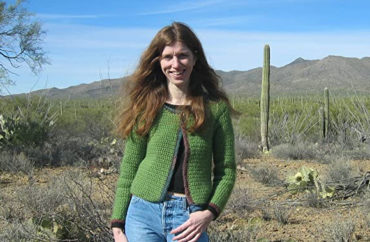
San Jose State University has rescinded a rule barring “menstruating personnel” from handling human remains within the school’s anthropology department, according to a female professor within the school that had been targeted by administrators.
Late last year, SJSU administrators barred anthropology professor Elizabeth Weiss from handling human remains after she posted a photo on social media of her holding a skull with the caption “So happy to be back with some old friends.” Weiss said she was expressing relief after being barred from the school during the COVID-19 epidemic.
A week later, SJSU Provost Vincent Del Casino expressed outrage over the photo in a letter to the university community that said the tweet had “evoked shock and disgust from our Native and Indigenous community on campus and from many people within and outside of SJSU.”
So happy to be back with some old friends @SJSU #anthrotwitter #archaeotwitter pic.twitter.com/l7fGrF65dh
— Elizabeth Weiss (@eweissunburied) September 18, 2021
Weiss argued the SJSU Anthropology Department had several similar pictures featuring different scholars up on its website at the time of her tweet. In March 2021, the SJSU newsroom published an article honoring the recipients of 2021 faculty awards, which contained an extremely similar picture of another SJSU professor holding a skull and smiling.
The school then barred Weiss from the human remains collection, of which she had been curator for 17 years. After she was targeted, the school implemented a rule stating “Menstruating personnel will not be permitted to handle ancestors.”
According to Weiss’ attorney, Daniel Ortner of The Pacific Legal Foundation, the rule barring menstruating individuals was part of the inventory protocol that went into effect after Weiss was barred from access.
“It was not adopted to keep her out because she was already barred,” Ortner told The College Fix via email. “But it was adopted in consultation with tribes afterwards.”
In February of this year, Weiss sued the university to get her research privileges restored. In addition to the photo, she had spent years fighting her department on issues such as whether they had a moral obligation in their work to cite more minority researchers, whether Native American folklore should hold the same weight as scientific evidence, and whether human remains should be repatriated to Native American graves even if it couldn’t be proven the remains belonged to the complaining tribes.
In response to her lawsuit, SJSU Associate Professor Charlotte Sunseri submitted a document titled “Inventory Protocols for AB275 Collections,” which included the rule barring menstruating personnel from accessing the human remains collection.
“I am appalled by the guidelines adopted by Defendants Sunseri and Ragland in consultation with the tribes for the inventory process,” Weiss said in a subsequent filing. “Barring female researchers from accessing the collection while menstruating is blatant sexism that should have no place at a public university or anywhere else.”
Later, Sunseri filed an amended statement indicating the school had removed the ban on menstruation.
Weiss called removal of the rule a “small but important victory.”
The @SJSU protocol for handling Native American remains used to state “Menstruating personnel will not be permitted to handle ancestors”. This sexist rule has been deleted, after @PacificLegal and I pointed out that it may be illegal. An important victory! #NAGPRA #anthrotwitter
— Elizabeth Weiss (@eweissunburied) April 13, 2022
Read more here.
MORE: San Jose State professor sues school after department called her ‘racist,’ blocked research
IMAGE: Elizabeth Weiss





Please join the conversation about our stories on Facebook, Twitter, Instagram, Reddit, MeWe, Rumble, Gab, Minds and Gettr.